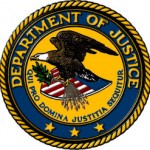 NORTH DAKOTA – Sanjay Ashani Williams sold “lead lists” of names and addresses to Jamaican Lottery fraud scammers who made millions of dollars conning victims, officials announced Thursday.
NORTH DAKOTA – Sanjay Ashani Williams sold “lead lists” of names and addresses to Jamaican Lottery fraud scammers who made millions of dollars conning victims, officials announced Thursday.
Williams, of Montego Bay, Jamaica, was found guilty this week on charges of one count of conspiracy to commit wire fraud or mail fraud, one count of conspiracy to commit international money laundering and 45 counts of wire fraud after a six-and-a-half-day-jury trial in federal court, according to Acting U.S. Attorney Christopher C. Myers of North Dakota.
Williams faces up to 40 years in prison and millions of dollars in fines, restitution and criminal forfeiture.
He will be sentenced on Aug. 6.
More than 70 victims were identified, with reported losses totaling over $5 million. Individual victims lost as much as $800,000 to the scam, officials said.
Williams is the first person prosecuted and convicted, in either the United States or Jamaica, for selling lead lists to be used in the Jamaican lottery fraud, federal prosecutors stated.
Williams’ co-conspirators then contacted victims by telephone or mail and falsely told the victims they had won a large sweepstakes prize, such as $3.5 million and a new Mercedes Benz automobile, according to authorities.
Officials said callers repeatedly instructed victims that in order to claim the prize, the victims had to send money, sometimes thousands of dollars, to the scammers to pay non-existent taxes, fees and insurance.
“This case should send the message to fraudsters around the world, if you victimize North Dakota citizens, we can and will find you and bring you to justice,” said Acting U.S. Attorney Christopher Myers said. “It is our hope that this groundbreaking prosecution will open doors for other jurisdictions to prosecute these cases and that the lessons we’ve learned can be used across the country.”
Williams and other scammers deliberately targeted victims over the age of 55.
After the “fees” were paid, officials stated that the victims were required to send more and more money, however, the prize was fake and the victims did not receive the promised prize.
The scammers frequently impersonated trusted institutions such as the FBI, Bank of America, the IRS and state government agencies, officials said.
They sometimes mailed official-looking, but fake, documents on letterhead to victims. Scammers also used official-looking e-mail addresses, telephone numbers and sent bogus checks to victims in order to make the scam more convincing, said authorities.
Prior to Williams’ trial, 11 indicted defendants from Jamaica and the United States were arrested and pleaded guilty in this case and 14 indicted defendants are awaiting arrest and extradition from Jamaica.
Three additional co-conspirators were charged in a separate indictment.

